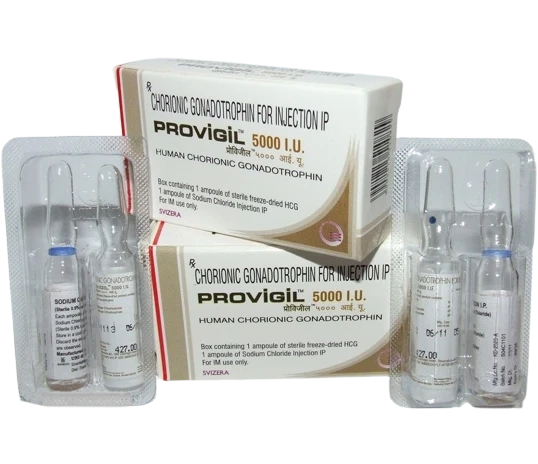Human chorionic gonadotropin (HCG) is a hormone that aids in ovulation and the treatment of female infertility. Women with primary ovarian failure do not respond well to human chorionic gonadotropin. It facilitates the release of eggs from the ovary in females. To keep the pregnancy going, the hormone prompts the uterine lining to release progesterone. Additionally, the pituitary, the liver, and the intestines generate HCG in smaller levels.
It frequently goes by the name "pregnancy hormone" due to the special function it plays in sustaining a pregnancy. HCG is seen in your urine or blood about 10 to 11 days after pregnancy when an egg is fertilized. Your HCG levels are greatest near the end of the first trimester 10 weeks of pregnancy, then gradually decrease for the remainder of your pregnancy. Healthcare practitioners test HCG to confirm a pregnancy and offer insights on how the pregnancy is going.
What does human chorionic gonadotropin do?
Your chances of becoming pregnant can be increased by using Human chorionic gonadotropin injections in conjunction with IVF or IUI. When the ovaries release an egg, it induces ovulation. Monitoring your HCG levels in the early stages of pregnancy might assist medical professionals to determine if you have had a successful pregnancy or if you have a history of infertility.
Once your placenta starts producing HCG, your body is stimulated to produce more estrogen and progesterone. These hormones help thicken your uterine lining and signal your body to stop menstruation when combined with HCG. The pregnancy is maintained and supported by these three hormones in the proper ratio.
In addition, people take HCG to help them lose weight, and is also used to treat hypogonadism in males, a disorder in which the body does not create enough testosterone. It helps cure diseases including delayed puberty and low testosterone levels in men by increasing the synthesis of testosterone. Young boys whose testicles have not fallen into the testicles as is often expected throughout development are also treated with HCG. Boys between the ages of 4 and 9 are typically administered HCG for this issue.
0


